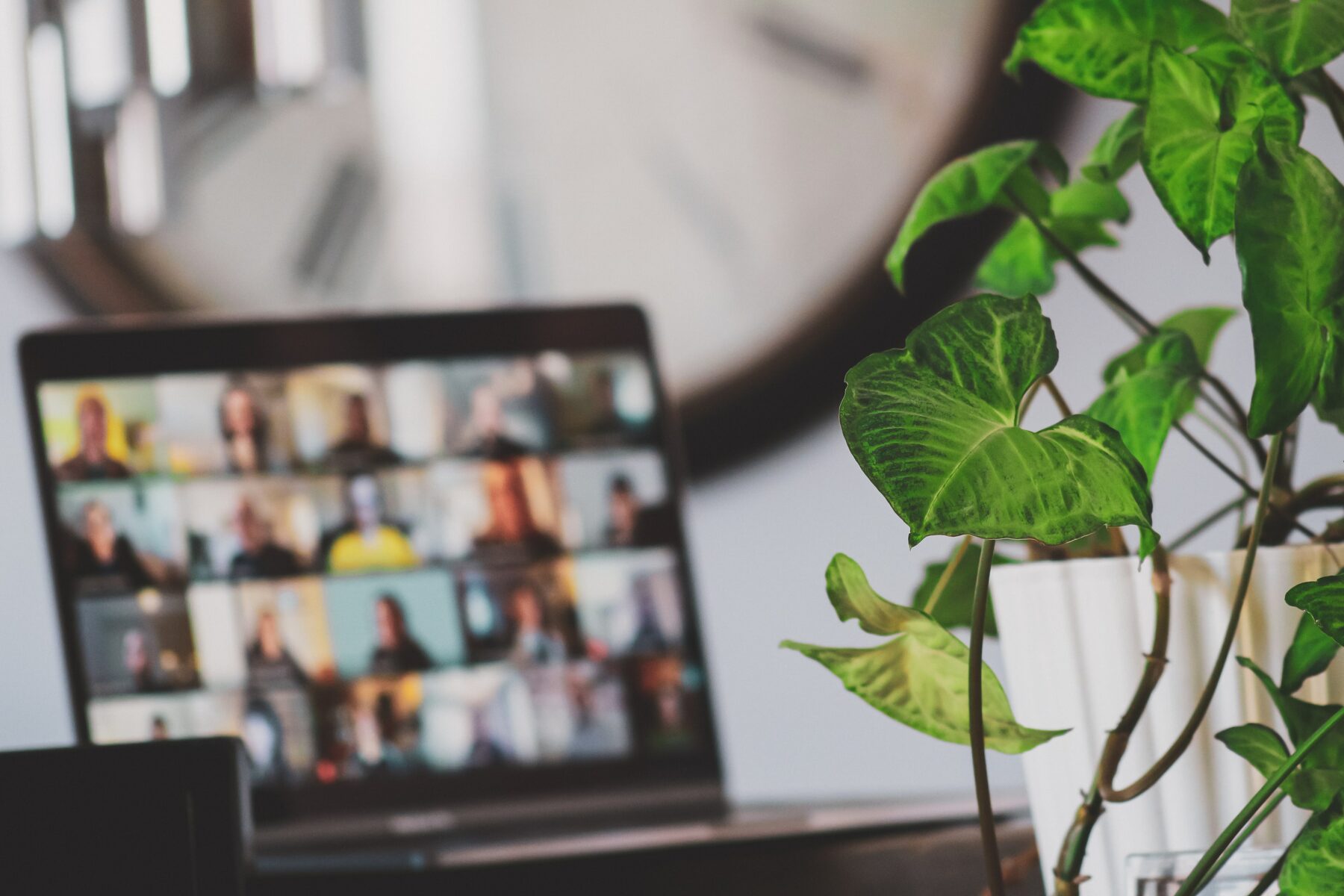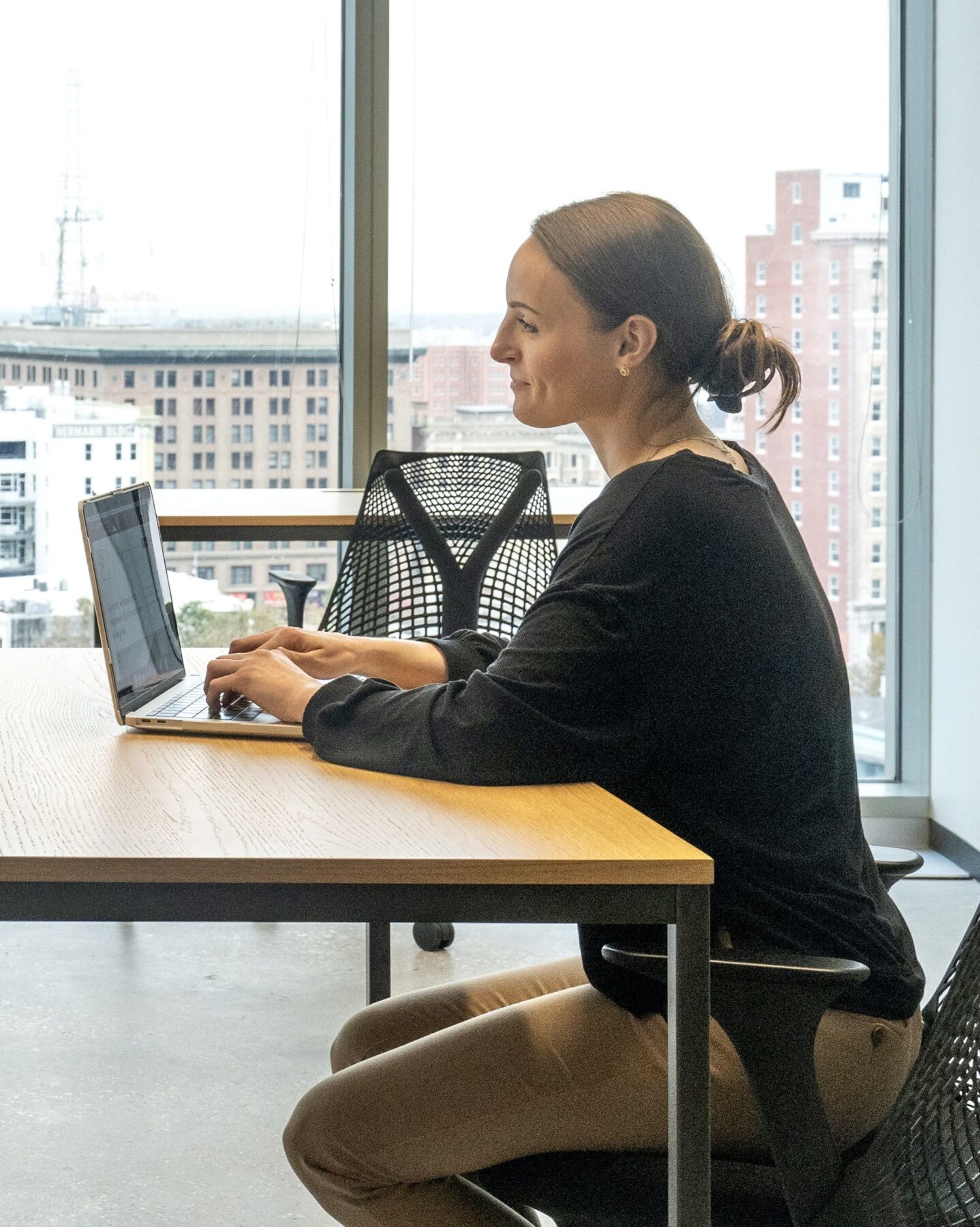The Future of Work: Hybrid Schedules & A Shifting Focus to Mental Health

The corporate culture of hyper-productivity is on its way out; for many, it’s been a long time coming.
The hybrid work model that dominated during the pandemic might be here to stay. Studies show that employees have increasingly been prioritizing mental health and well-being more than ever, and a flexible schedule with the ability to work from home is key. Things like paid time off, improved mental health support, adequate staffing and better health insurance are now top priorities for professionals in the workforce – right alongside financial well-being.
Forbes cited a 2021 survey by Paychex and Future Workplace, which found that for 62% of respondents, well-being benefits were imperative when applying for a new job. Meanwhile, Gallup’s recent study found that among those whose job can be done from home, nine out of 10 prefer some degree of remote-work flexibility, while six in 10 preferred a hybrid model. 
Robert Hilliker, who is a therapist, substance use counselor and co-founder/Chief Clinical Officer of Ethos Behavioral Health Group, says he was surprised by the success of virtual work.
“If you told me four years ago, ‘There’s going to be a major global event that will shift your business to be 90% online,’ I would have said, ‘No way, it won’t work’,” Hilliker says. “But people adjusted, and it wasn’t tumultuous. We’ve become so acclimated, and we’ve enjoyed some of the freedoms it allowed for.”
This shift in the workforce is accompanied by what many call “The Great Resignation.” People are leaving their long-term jobs in huge numbers to be with their families or look for something more accommodating. Hilliker says the workforce isn’t going back to the way it was.
“In many ways, the underpinnings (of this shift) were already in motion,” Hilliker says. “But because we were working from home and experienced a different pace of life, the pandemic solidified this transformation and the breakage of what was almost a cultural psychosis around productivity, (the idea of) work harder, do more.”
John Howard, who is a therapist and the Director of Clinical Training and Community Relations at Presence Wellness, says the workplace had to respond to the rising anxiety levels during the pandemic with compassion and attentiveness. They did this by allowing for more flexibility and downtime, and people followed suit.
“People have adjusted to living in a way that’s more relaxed and communal,” Howard says. “They’re caring for their children, loved ones and, most importantly, themselves.”
Although the flexibility of working from home helps alleviate anxiety and burnout, it also has its drawbacks. Howard says a lot of people miss that community aspect of working in an office and don’t like feeling isolated at home. Studies show workers are looking for a happy medium between virtual and in-person work. Hilliker says there’s a balance.

“That’s the delicate balance,” Hilliker says. “How do we not tip into a culture of isolation? How do we continue to provide meaningful opportunities for connection?”
So what can employers do to meet these arising needs for well-being, flexibility and connection, especially in a competitive hiring environment? Howard says he’s seen many employers tackle this problem by inviting wellness programs and consultants into the workplace to survey their staff. This helps them identify issues such as high-stress environments, high-burnout roles and bad communication.
Hilliker says these innovations are exactly what’s necessary to value mental health while meeting people’s social needs.
“(These companies are) creating opportunities for teams to connect and engage in ways that are fun and also valuable,” Hilliker says. “(They’re) listening to what they want and need, providing a comfortable and engaging environment – a place where people want to be.”
About the Author

Sydney Cooper spends her time at Pop Ratio, helping companies like Ethos Behavioral Health Group — a family of healing centers focusing on mental health, wellness and substance use recovery — with marketing and communications, including public relations, content creation and more.






